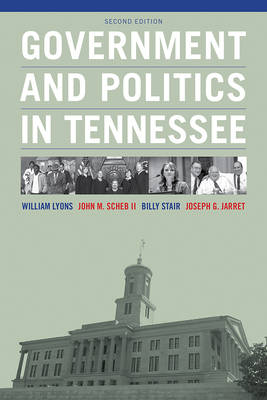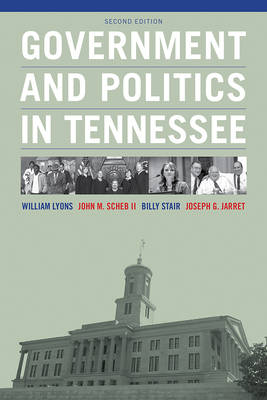
- Retrait gratuit dans votre magasin Club
- 7.000.000 titres dans notre catalogue
- Payer en toute sécurité
- Toujours un magasin près de chez vous
- Retrait gratuit dans votre magasin Club
- 7.000.0000 titres dans notre catalogue
- Payer en toute sécurité
- Toujours un magasin près de chez vous
Government and Politics in Tennessee
William Lyons, John M II Scheb, Billy Stair, Joseph Gregory JarretDescription
Most Americans are more aware of the workings of the federal government than of their own state governments. But these "laboratories of democracy" constitute perhaps the most creative components of the American political experiment.
This book serves as a guide for students of government and provides a historical context for understanding the forces at work in the state's political system. Among the states, Tennessee's unique blend of legislative and executive powers is, in some respects, far more a product of personality than political ideology. This second edition describes these often colorful leaders and the issues they grappled with, including education, health care, corrections, economic development, and other key factors. A full analysis of government institutions embodied in the legislative, executive, and judicial branches is supplemented by added attention to county government and public administration.
Fully up to date, this edition also provides key chapters on the media, political campaigns, and the rising dominance of the Republican Party in recent decades. In addition, it focuses on how a new generation of politicians--among them, Governor Bill Haslam, House Speaker Beth Harwell, and Knoxville Mayor Madeline Rogero--have emerged to carry on the legacy of state leadership.
William Lyons is the chief policy officer for the City of Knoxville and a professor emeritus of Political Science at the University of Tennessee, Knoxville.
John M. Scheb II is a professor of political science at the University of Tennessee, Knoxville, and a faculty fellow of the Howard H. Baker, Jr., Center for Public Policy.
Billy Stair served for eighteen years in the legislative and executive branches of state government, including eight years as senior policy advisor to the governor.
Joseph G. Jarrett is a lecturer in the Department of Political Science at the University of Tennessee, Knoxville, and has been practicing public sector law for over two decades. He served as Knox County's law director from 2008-2012.
Spécifications
Parties prenantes
- Auteur(s) :
- Editeur:
Contenu
- Nombre de pages :
- 408
- Langue:
- Anglais
Caractéristiques
- EAN:
- 9781621903482
- Date de parution :
- 03-11-17
- Format:
- Livre broché
- Format numérique:
- Trade paperback (VS)
- Dimensions :
- 152 mm x 231 mm
- Poids :
- 612 g

Les avis
Nous publions uniquement les avis qui respectent les conditions requises. Consultez nos conditions pour les avis.






